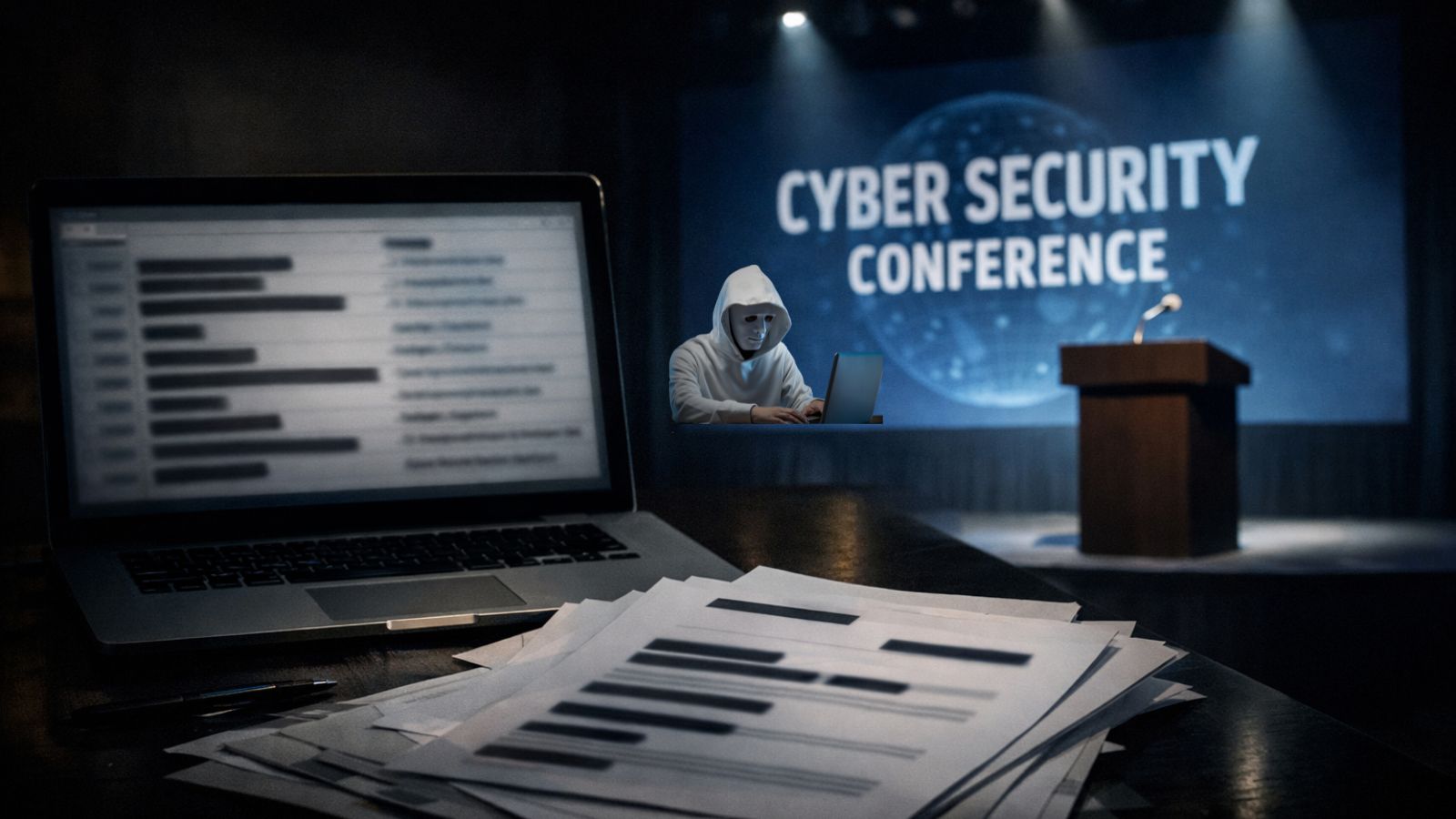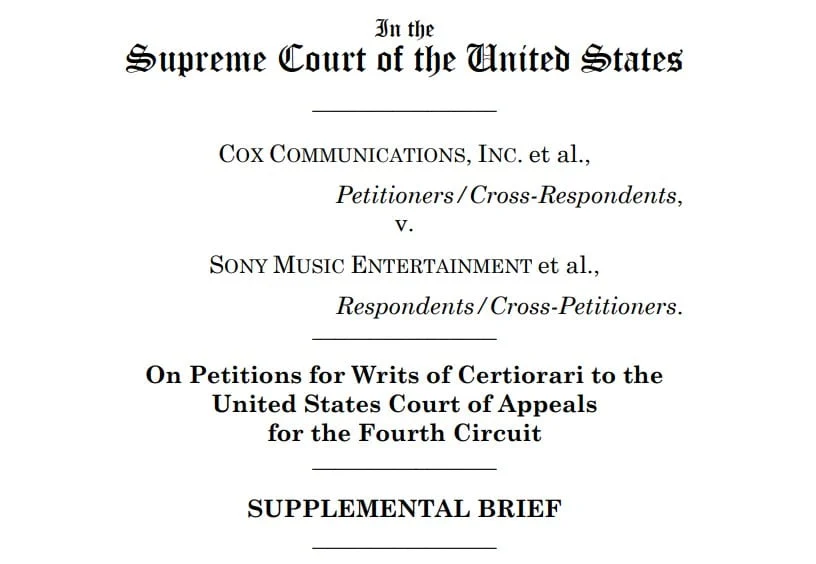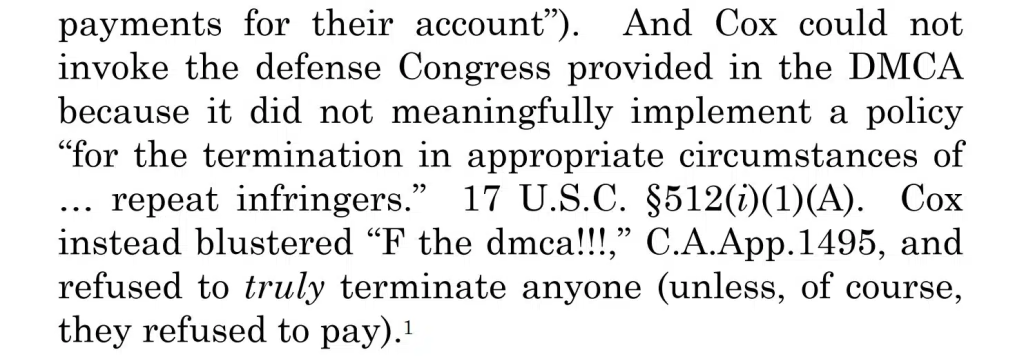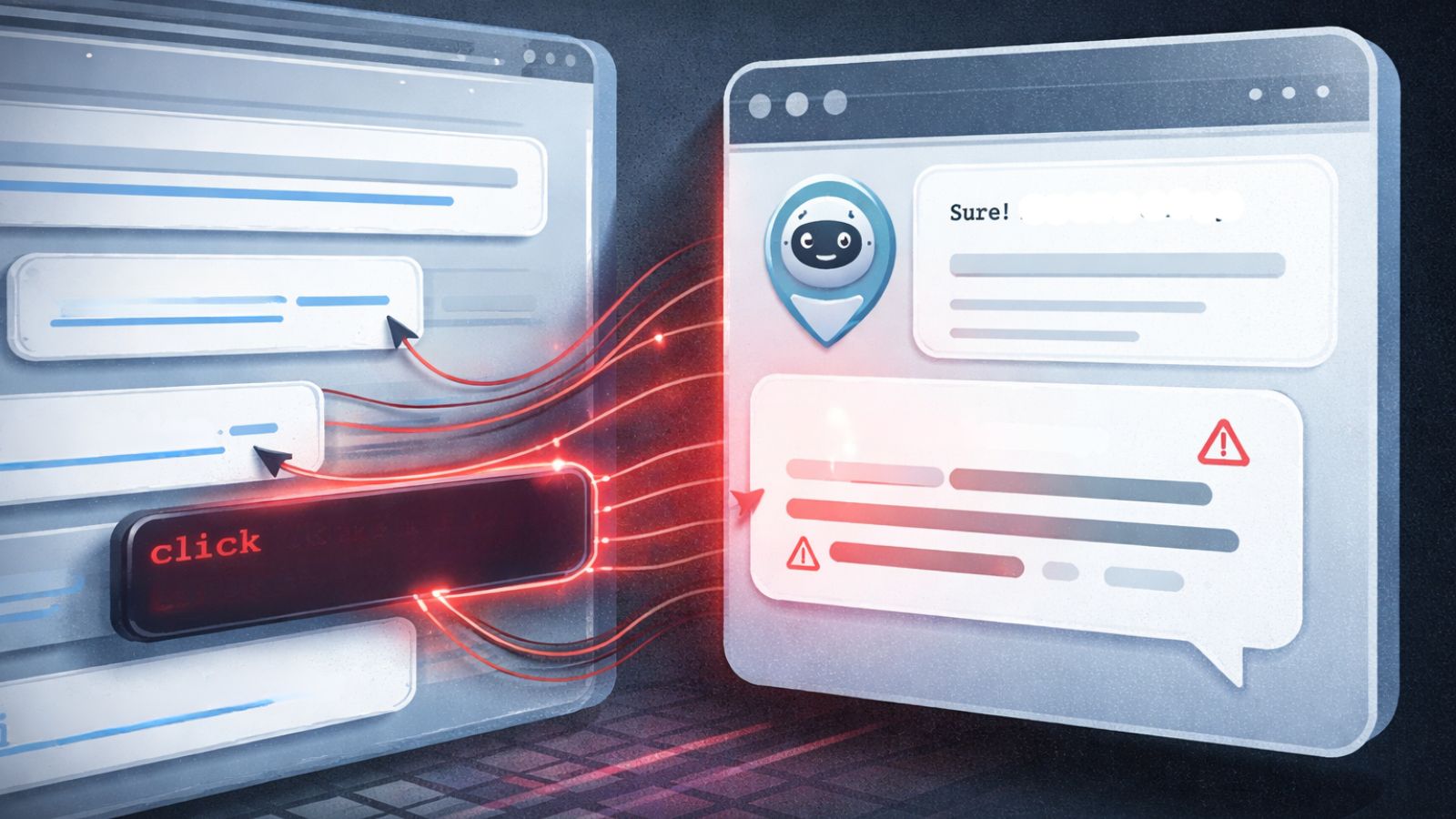
ISP Piracy Liability and Record Labels Face a Landmark Legal Dispute as US Government Sides with Cox
- In an unexpected turn of events, the U.S. announced its support for Cox Communications in a piracy case.
- The ISP was accused of failure to take action against subscribers engaged in rampant piracy.
- Major record labels have expressed their dismay at the government’s position, labeling it as “bewildering.”
The ongoing legal battle between internet provider Cox Communications and major record labels, including Sony and Universal, has reached a pivotal moment with significant implications for ISP liability in copyright infringement cases.
This case stems from a $1 billion damages verdict against Cox in a Virginia court, citing the ISP’s failure to take action against subscribers engaged in rampant piracy.
The U.S. Supreme Court recently requested guidance from the Solicitor General on the matter, and a decisive amicus brief was delivered.
The U.S. Government took an unexpected stance, supporting Cox and arguing that liability should not be inferred merely because an ISP is aware of subscriber piracy.
The brief underscores that “willful” copyright infringement requires either knowledge or reckless disregard for illegality in the ISP’s conduct, not just awareness of third-party actions.
This position reflects broader concerns about the legal precedent this case could set for ISPs and subscribers alike. The U.S. warns of potential negative implications, including significant burdens for ISPs and risks to user privacy.
The record labels have expressed their dismay at the government’s position, labeling it as “bewildering” in a point-by-point rebuttal.
They argue that Cox willfully ignored repeat infringement notices to prioritize profits, effectively discarding its obligations under the Digital Millennium Copyright Act (DMCA).
Highlighting internal Cox communications that allegedly disparaged compliance with the DMCA, the labels emphasize sufficient evidence demonstrating Cox’s negligence in enforcing repeat infringer policies.
Furthermore, they contend that Cox should also face vicarious liability, asserting the ISP benefited financially from pirating subscribers.
The case raises questions about the extent to which ISPs can be held accountable for user behavior and the boundaries of copyright enforcement. A decision in favor of Cox could significantly alter the legal framework governing ISP liabilities and copyright laws.
The Supreme Court’s pending decision to hear this case will serve as a major inflection point, setting critical precedent for the future of both copyright enforcement and digital privacy.








